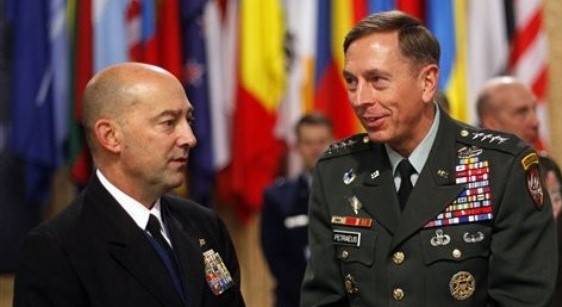
From James Stavridis, U.S. European Command: [W]e were able to deliver the three key initiatives we have been seeking for several years :
• NATO-Russia in a “true strategic partnership.” This means working with the Russians in a wide variety of venues. I’d put Afghanistan, missile defense, counter-narcotics, counter-piracy, and counter-terrorism at the top of the list. …
• Afghanistan transition plan. After briefings by both General Dave Petraeus and me, the 48 nations of the ISAF coalition agreed to a transition plan that will begin in 2011 and conclude with Afghan leadership by 2014. …
• The new Strategic Concept for NATO. With the adoption of the first new Strategic Concept since 1999, the Alliance has a well defined path forward into this turbulent 21st century. … The key elements of the new Strategic Concept, agreed to by all 28 NATO nations, include: Crisis Management; the Comprehensive Approach; Missile Defense; partnerships, especially with Russia; NATO Reform and Efficiencies; and cyber defense. …
This week, the hard work begins at my headquarters in Mons, as we get to work on how to “operationalize” all of these good ideas. We have working groups tackling each of these key action items, and will be presenting our thoughts for political guidance and ultimately for implementation over the next six months.
The Summit was a good example of NATO moving out and responding to a changing world. We have lots of work ahead, but I came away with a real sense of confidence in the direction we are sailing.
Admiral James Stavridis is Commander of U.S forces in Europe and NATO’s Supreme Allied Commander, Europe (SACEUR). (photo: AP)
Image: ap%2011%2029%2010%20Stavridis%20Petraeus2.jpg
